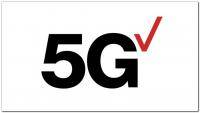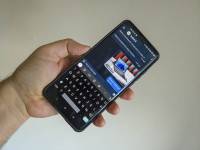Verizon’s Nationwide 5G network found to be slower than 4G in real-life tests

Verizon switched on its Nationwide 5G network for around 200 million users in October just in time for the iPhone 12’s arrival. And a month later in December, the carrier expanded the coverage to 230 million users. Now, Verizon’s Nationwide 5G essentially plays second fiddle to its much faster Ultra Wideband (UWB) 5G network that relies on the mmWave spectrum, while the Nationwide 5G runs on lower spectrum bands. Actually, Verizon’s Nationwide 5G relies on a technology called Dynamic Spectrum Sharing (DSS) to piggyback on the 4G spectrum in areas where 5G Ultra Wideband coverage is not available. But in real-life tests, Verizon’s Nationwide 5G has been found to be slower than its 4G LTE coverage.
As per tests conducted by PCMag’s Sascha Segan using the iPhone 12 Pro in the New York area, the 5G data transfer speeds recorded on Verizon’s DSS Nationwide 5G network were slower compared to Verizon’s own 4G LTE network. Yes, Verizon’s 4G is faster than its low-spectrum 5G network that covers over 230 million people in more than 2,700 cities. “Our most recent tests, using an iPhone 12 Pro in New York City, show that DSS 5G is frequently slower than 4G, and rarely faster,” the report says.

Unless its Verizon's UWB 5G, just turn off 5G on your phone
Tests conducted using the OnePlus 8 on Verizon’s DSS 5G network and the Samsung Galaxy S20 FE on Big Red’s 4G network again proved that Verizon’s 4G LTE fares better than 5G when it comes to downlink speeds. Switching between 4G and DSS 5G on the same device – which happens to be the iPhone 12 Pro in this case – returned the same results. Just to make it clear, the mmWave-based UWB 5G offers much faster speeds, but it has very limited coverage and suffers from penetration issues. The sub-6GHz 5G band, on the other hand, sacrifices raw speeds in favor of wider coverage and more stable network reception.
“I took the iPhone 12 Pro to eight locations around New York City, where I compared 4G and 5G speeds. At the first seven locations, the 5G was DSS and generally slower than 4G,” adds the report. “DSS is supposed to have lower latency, but many of our DSS 5G tests even had slightly higher latency (by a few milliseconds) than our LTE tests.”

When asked about the findings, Verizon issued a standard boilerplate response about how things will improve in the months to come. “For most customers, performance on our 5G nationwide network will be similar to 4G. [DSS] is new technology and we’re continuing to modify it as we go. We expect performance improvement through 2021 and beyond,” a Verizon spokesperson was quoted as saying by PCMag.













